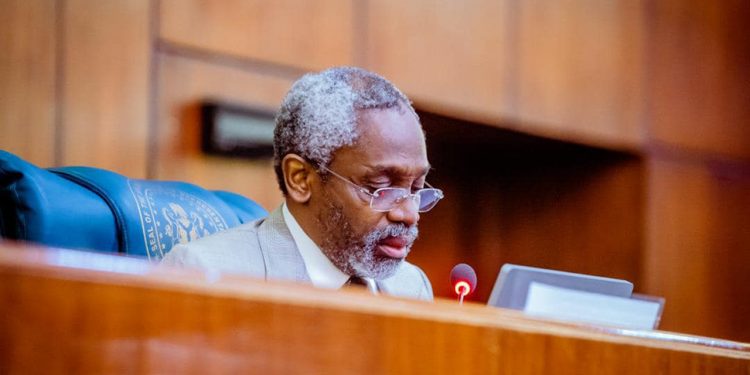The Speaker of the Nigerian House of Representatives also called the Green Chambers, Femi Gbajabiamila have said that the effort of the government in the area of university education is inadequate. He also said the leadership of the House wants to intervene in the ASUU strike with a view to ending the strike action that has now lock out thousands Nigerian students from public universities for about 7 months now.
WHAT WE KNOW
The Speaker of the House of Representatives, Femi Gbajabiamila, has said the parliament is committed to doing everything possible to end the lingering crisis between the Federal Government and the Academic Staff Union of Universities.
Femi Gbajabiamila disclosed that the House has summoned a stakeholders’ meeting to resolve the crisis that had led to lecturers shutting down the universities for over seven months.
The Speaker had invited the Minister of Finance, Budget and National Planning, Zainab Ahmed; Minister of Labour, Employment and Productivity, Chris Ngige; Minister of Education, Adamu Adamu; the national leadership of ASUU and other critical stakeholders.
Gbajabiamila, in his remarks at the opening of plenary on Tuesday after the National Assembly returned from its two-month annual break, pointed out that the lawmakers owe the intervention to Nigerian youths and Nigeria’s future.
NOTABLE QUOTES
Speaking at the resumption of plenary, Femi Gbajabiamila said:
“It has become necessary for the House to intervene in the extended face-off between the Academic Staff Union of Universities and the Federal Government. This current impasse is due primarily to disagreements over conditions of service of the staff and funding of universities in general.
“Therefore, this afternoon, alongside the leadership of the House and the relevant committees, I will meet with representatives of the ASUU. Our agenda is to explore whatever options there are for parliament to help resolve the present crises so that our children can return to school.
“It is long established that access to education, more than anything else, is key to unlocking prosperity and improving social mobility outcomes in any society. And we all agree that the government has a role in ensuring that our nation’s young people get a quality education that allows them to compete and thrive in the 21st-Century knowledge economy.
“Yet, evidence abounds that the current framework of government sponsored tertiary education is no longer working as it should and hasn’t worked for a long time. Our immediate goal is to do everything to get our children back to school. However, the time has also come to begin a candid assessment of the current system and to consider all available options for complete reform. We owe this to our children and to our nation’s future.”
CATCH UP
Recall that Nigerian Universities have been locked for over seven months now.
The Federal Government last week approached the National Industrial court, declaring that talks with the university union ASUU has failed.
After Monday’s hearing, the court had fixed Wednesday 21st September for ruling on the interlocutory injunction by the Federal Government seeking to compel ASUU to call off the strike.
On Monday students had protested the continued closure of the universities as they blocked the access road to the Murtala Mohammed international airport in Lagos.
COMMENTARY
Finally the Green Chambers have realised ASUU is on strike and need to intervene. This sounds good on face value.
However, the critical question is “how serious is the Federal Government to end the ASUU strike?
It is pitiable to note that one month after NASU and SSANU called off their strike, the workers are yet to be paid their salary, making the union leaders embarrassed before their colleagues.
Recall that this strike wouldn’t have happened if the FG lived up to her responsibility of implementing the renegotiated 2009 agreement.
The same government did set up a committee recently, but rather than wait for the committee’s work, the FG prefers litigation, which is likely going to take more time.
Beyond time consumption, if for instance the court rules in favour of the FG, which is unlikely, what that means is that the FG would have found a way to escape the responsibility of implementing agreement entered.
Nevertheless, the question would still remain – how does this help our education system and the future of the Nigerian youths in the long term?
As the House of Representatives Members meets with ASUU and the government (the meeting should be ongoing now), the speaker being a member of the ruling APC, should remind his party men that negative peace in the universities: ASUU/Government relations may not help our universities for too long.












